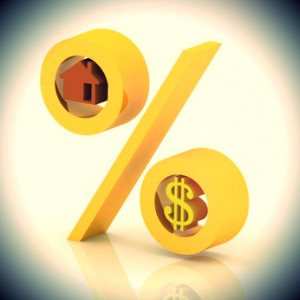There’s more to the cost of owning that dream home than the price the seller is asking for. The interest rate on your mortgage loan affects the price and how much you’ll pay every month to your mortgage company.
Comparing mortgage interest rates is important because they may change daily, and different rates may be associated with different types of loans. With variable-rate or adjustable-rate mortgages, it is understood from the outset that the loan’s interest rate will change over time, becoming higher or lower depending on the current economic climate.
Let’s look at why mortgage interest rates fluctuate so frequently.
The Federal Reserve and Interest Rates
 The Federal Reserve System (“The Fed”), although considered our country’s central banking system, is independent of the federal government. In essence, the Fed controls the movement of money throughout the U.S. financial system.
The Federal Reserve System (“The Fed”), although considered our country’s central banking system, is independent of the federal government. In essence, the Fed controls the movement of money throughout the U.S. financial system.
The Federal Reserve System is composed of a Board of Governors and 12 Federal Reserve Banks, spread throughout the country. The seven members of the Board of Governors, the president of the Federal Reserve Bank of New York and four other reserve bank presidents serve on the Federal Open Market Committee (FOMC), the policy-making body that determines, among other things, the interest rate charged to commercial banks.
The FOMC controls inflation by tightening or loosening the country’s money supply. One way they do this is by raising interest rates to control inflation. When borrowing money costs more, consumers tend to shy away from taking out loans, hopefully leading to lower prices.
By the same token, lower interest rates encourage consumers to borrow and spend, which in turn boosts the economy. Overall, the fluctuations in mortgage interest rates reflect an attempt to keep a balance in the economy, and to prevent inflation without bringing the economy into a recession.
Mortgage Investors and Changing Interest Rates
The Federal Reserve is not the only player affecting changing mortgage rates. To create more money to lend, banks often sell their loans on the secondary market, now controlled by the federal government. Banks and other mortgage lenders sell mortgage-backed securities to investors. The return on investment for these investors is generated by interest paid by mortgage holders on their loans. For the investors to realize a return, banks must charge a higher interest rate.
Homebuyers (the mortgage loan borrowers) want low interest rates on their mortgages. This force drives interest rates back down. In addition, when investors know rates are going to drop, they purchase these securities, increasing demand and eventually sending interest rates back down. Banks must balance these two opposing forces, and the resulting push-and-pull drives mortgage interest rates.
The Effect of Changing Mortgage Interest Rates on Loans
Though they are locked-in once the application process is completed, fixed-rate mortgage rates are constantly changing. Interest rates for variable-rate loans fluctuate as well, and continue to change throughout the term of the loan. Another impact on interest rates occurs when lower interest rates attract homeowners wishing to refinance their mortgages.
While all of this may seem complicated to the average homebuyer, an awareness of what drives interest rate changes can help you know when the ideal time has arrived to apply for a loan.
